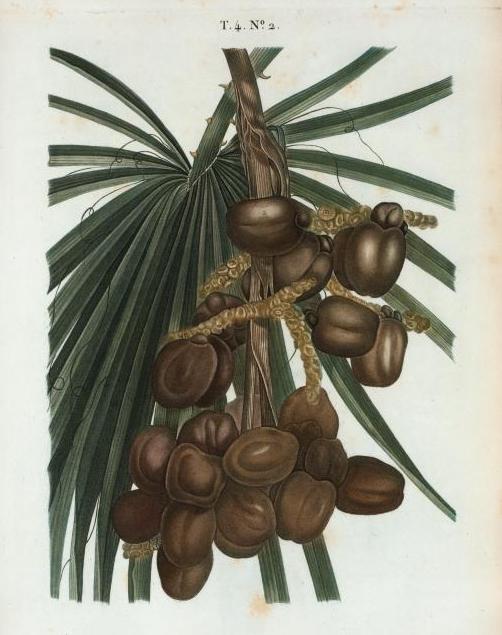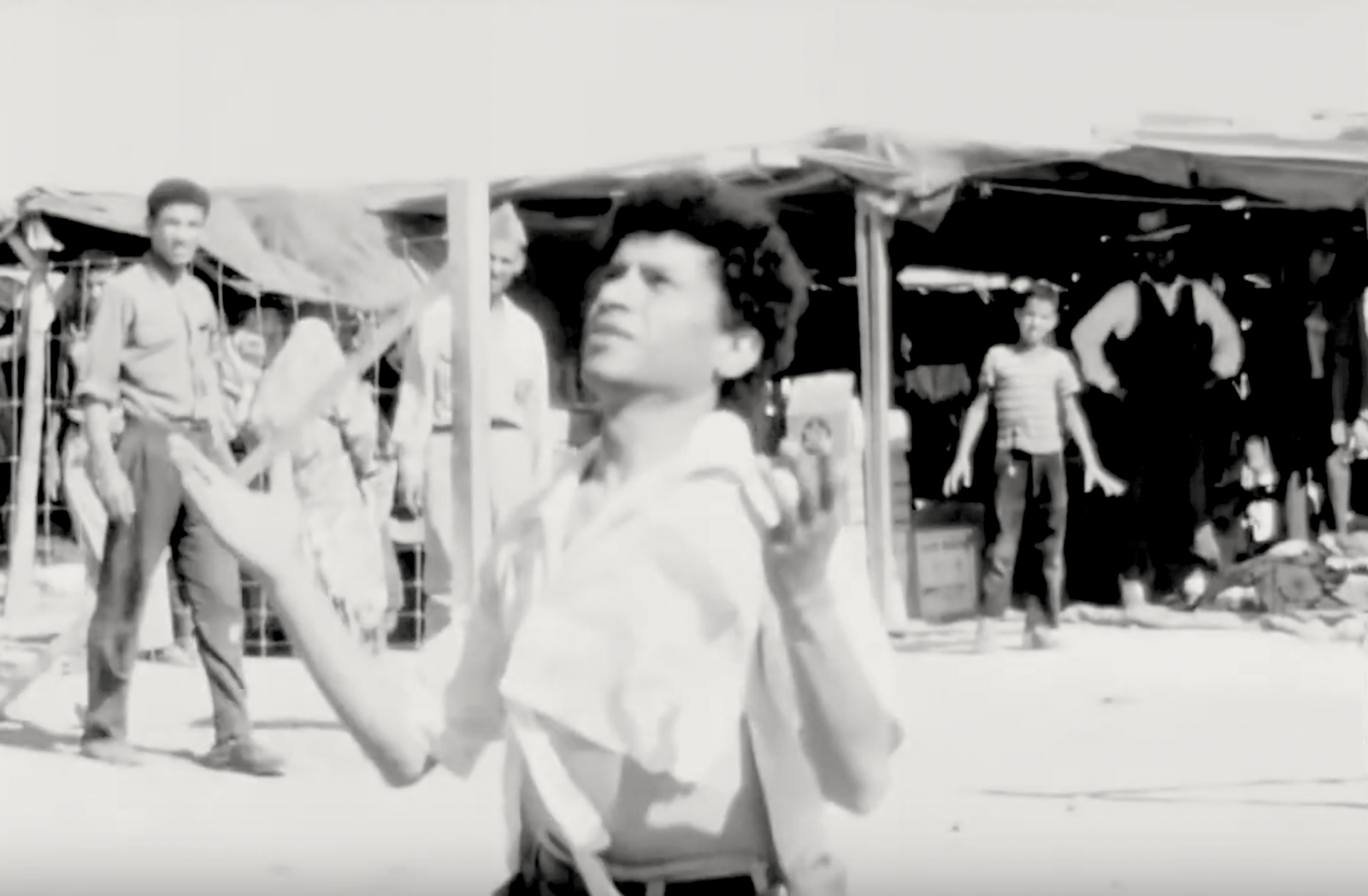
I am an unlikely author for these entries. With Ramadan now over, it strikes me—without deep embarrassment, just the cooling knowledge of personal fact—how much I I used to dread this month. I stopped partaking in it for years after college, even growing hateful at how it disrupted life without my consent especially in countries where its commemoration ground public life to a halt.
This was especially true in Rabat, where I lived in a twelfth-century Almohad Caliphate fortress for an entire summer alone, desperate for both food and a wifi connection less spotty than the kasbah's impenetrable walls allowed. I was there on a dissertation fellowship to research the Moroccan film archives, in a municipal building whose schedule was more a social suggestion than set business hours. The government officials who checked out 35mm film reels to me seemed on the verge of passing out, as much from boredom than the burden of fasting, and most days I talked to no one. I am never coming to the region during Ramadan again, I would swear into the night air, as families swarmed the streets after sunset, reviving the search for food and sociability.
To feed myself, I would taxi to a "Western" hotel where they served a prix fixe menu during the day. The restaurant manager and wait staff took pity on me, and though I don't remember what my excuse was for not fasting I was meshed into the category of "Others" who were in town on official business or off-season tourism, or had simply not bothered to research a more culturally appropriate or inviting interim. I was very alone, the internet was bad, and I wanted to go home.
I eventually got what I needed at the archives, even though some days the building would simply shut down without warning at the whim of the officers. In the brooding hours at my disposal, I would wonder mournfully about what would happen to all these films that I was allowed to touch, albeit with gloves, in the instance of an accident or fire.

I was there to view the original reel of Le fils maudit (The Damned Son), the first feature film ever made in Morocco, uncannily related in theme and content to the subject of my research on depictions of urban bandits. A worker would hand crank the reel on a Steenbeck flatbed, and use another hand to crank the subtitle caption reel. Hours would go by like this, me and the worker (never the same one), the editing table, and one of maybe two copies of Moroccan cinema's heritage all squeezed into that tiny room. Please God don't let there be a fire, I would worry on the archive's behalf. Then I would take a cab home to the kasbah and wait for the day to be over.
A much earlier memory is a Ramadan in Tehran when I was five. I had gotten hungry on an errand run with my grandmother, but since selling food openly during the daytime is outlawed by the Iranian government, my grandmother took heavy turns pleading (the shop keeper may also have been offered a lavish tip) to let her buy me a sandwich. Likely he refused, since the authorities would shut down his entire store if they found out, but my grandmother's pleas on my behalf, or for the mercy of reason, never escaped me.
Since I did not have much choice in the matter of Islam as a child, when the Qur'an was taught to me, I learned it through rote memorization. It held a low level of curiosity over my imagination, but did not fascinate. (What fascinated were pianos, which I wasn't allowed to play.)
In college an atheist Arab professor told me that the greatest English translation of the Qur'an was A.J. Arberry's The Koran Interpreted. I own a copy but it never until now occurred to me to read it in full, in English, in one month. And I did so, full of bookmarks and underlines that people in the subway sometimes asked me about. (That's not true. Only one person asked: M., a Malaysian Buddhist, who later texted, "I can really tell that you love your grandmother!")
Because I am finishing a book manuscript in translation this month, Arberry's translator note holds special regard for me, no less because he was a non-Muslim considered to be the greatest translator of a holy book. He broke with convention, at least in my experience of translated copy, by including a note before each of the Qur'an's three volumes, which breaks up the 704 pages in an unexpected way. In my personal reading experience, it was a little wild to be interrupted by the voice of a British scholar inside the translation. It was not unwelcome. All you have as an artist are your choices, I always say, so you might as well make them carefully and atypically. Say it with your whole chest, as the kids would say.
During our trip upstate last month, my friend S. says she's inspired to read it too and purchases a copy too. She leaves me a voice note in which she says that she sees evidence for some elements of reincarnation in Islam in "The Cow" (Sūrah al-Baqara, the longest chapter of the Qur'an) and for indiscernible reasons a shiver runs down my lower spine. She says she misses the sound of the Arabic, though, because this large volume does not provide the original.
S.'s son, who may also be an Arab atheist, has a theory that there are two modes of living. You either live life in alhamdulillah (praise be to God) or inshallah (if God wills it). I'm intrigued by the idea that you can either live in receptive gratitude or prospective success, and this Ramadan, most of what I thought to be true about which of these two I am was flipped completely and wonderfully on its head.
Briefly I remember a one-time love (yet another atheistic Arab man) who said he couldn't read the Qur'an because it was, "like Islam, too seductive."
Arberry:
The rhetoric and rhythm of the Arabic of the Koran are so characteristic, so powerful, so highly emotive, than any version whatsoever is bound in the nature of things to be but a poor copy of the glittering splendour of the original. Never was it more true in this instance that traduttore traditore. My chief reason for offering this new version of the book which has been 'translated' many times already is that in no previous rendering has a serious attempt been made to imitate, however imperfectly, those rhetorical and rhythmical patterns which are the glory and sublimity of the Koran. I am breaking new ground here; it may therefore be thought appropriate to explain in short my intentions and my method...
This experience of giving myself the opportunity to know the book without familial or social interference has been... well, I don't really know how to describe it yet. It feels too personal to describe. There is much to say. I won't say it now. I continue to carry the translated copy everywhere, and the tiny orange bookmarks stickers flapping out of its pages horizontally and vertically make a small architectural scaffold out of my questions.
Eid comes. There isn't one Eid this year but two, since there are diverse opinions on lunar sightings. I attend collective events on both days, and gradually get hit with a surprise wave of grief and sadness. Standing in a banquet hall in formal wear and new shoes, I become aware of stuck tears wedged behind my eye sockets, and calculate how much eye makeup can be salvaged if I let them erupt. "It's like feeling sad on Christmas," I tell a friend. "I'm not sad sad, I'm just very, very aware of impermanence."
Ramadan makes me feel like I'm living inside a Rolling Stones song. It doesn't matter which one. "I Can't Get No Satisfaction":
When I'm driving in my carWhen a man come on the radioHe's telling me more and more About some useless informationSupposed to fire my imagination
There are many clichés about feasts and famines, hefty Fat Tuesdays preceding the dry Lenten season, and I have grown deeply reverent about Ramadan because it radically moves me beyond what I think I know about these dichotomies. Maybe because the materiality of withholding food and water is so dense, especially in a contemporary capitalist hellscape where all-day labor is an irrefutable reality, one is bound to learn something useful and pliable in this practice. "You Can't Always Get What You Want":
I saw her today at the receptionIn her glass was a bleeding manShe was practiced at the art of deceptionWell, I could tell by her blood-stained hands, sing itYou can't always get what you want, yeahYou can't always get what you want, ooh yeah, childYou can't always get what you wantBut if you try sometimes you just might findYou just might findYou get what you need, ah yeah